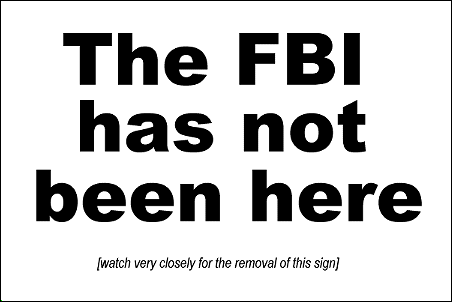For some reason last year I didn’t do my annual roundup of Banned Books Week websites. Here is a link to the source of the image above which is from the New Yorker’s article about the JD Salinger-evocative book 60 Years Later, Coming Through the Rye which is illegal to sell in the US. You can find more news articles about that situation at the author’s small Wikipedia page. You can look at past posts on this topic by checking out the bannedbooksweek tag here or here is a list of the annual posts: 2000, 2001, 2002, 2003, 2004, 2006, 2007, 2008, 2009, 2010 and 2011. I skipped 2005 and 2012.
As usual, you get a neat real-time look at what’s going on by following the Twitter hashtag. Do NOT look at the bbw twitter hashtag as I mistakenly did last night. As usual there are two “main” sites the ALA site at ala.org/bbooks and the bannedbooksweek.org site which is really nice looking this year. The BannedBooksWeek Twitter account is still moribund which is a damned shame. The Virtual Read Out doesn’t seem to have any new videos this year… yet?
Please remember if you are a librarian who has a book that is challenged, report it to the ALA so they can keep track of it.
Here is the list of organizations who are co-sponsors. Let’s look at their websites.
- American Library Association – has that clicky slide show on their home page, in which #7 is a link to the Banned Books site on ALA.org. There is a link to their press release on their news page. OIF maintains the main Banned Books Week pages which I linked to above.
- American Booksellers Association – they seem to do most of their promotion via ABFFE (below) but they have this post on their blog about what is going on this week and also created a Banned Books Week in a Box for book sellers to promote Banned Books Week. Nothing at all on their Facebook/Twitter accounts.
- American Booksellers Foundation for Free Expression – is doing a poetry reading in NYC and I’m gratified to see their home page mentioning the NSA/Snowden issues. Last year’s Banned Books Week Handbook is still available though their Five Easy Ways to participate has been changed to Four Easy Ways. I especially appreciate their links and information about the Kids Right to Read Project since the bulk of challenges lately are about books that people deem age inappropriate.
- American Society of Journalists and Authors – linked to this press release which is the boilerplate one from ALA/ABA/ABFFE. their Banned Books Page from two years ago is now a 404. Nothing on Twitter/Facebook.
- Association of American Publishers – their website has a list of Banned Books Week quotations and this other page talking about what some of their major publishers are doing. Harper Collins has a Banned Books Week page on their EpicReads site outlining HC books that have been banned or challenged. Their header graphic has last year’s date on it, unfortunately.
- National Association of College Stores – nothing, as usual. Nothing on Twitter/Facebook.
- Comic Book Legal Defense Fund – has a very useful page about BBW and a list of banned/challenged comics. They also have this very useful page for librarians an educators.
- National Coalition Against Censorship – good website as always and an active and useful Twitter feed. Their Books page has links to current challenges and more information on the Kids Right to Read project.
- The Freedom to Read Foundation – are spotlighting a different recipient of the Judith Krug Fund Banned Books Week Event Grants. I especially liked reading about Judith’s Reading Room an organization that provides “custom libraries to not-for-profit organizations that serve people who, for any reason, have limited or no access to literature”
- National Council of Teachers of English – has their own BBW page this year and a link to an interesting article outlining how NCTE Actively Began Fighting Censorship in the 1950’s. They have their own challenge reporting site.
- Project Censored – a brief mention on Facebook/Twitter.
- Center for the Book in the Library of Congress – apparently endorses the events but not publicly. They are just wrapping up the National Book Festival so they’ve been a little busy.
- PEN American Center – has this post outlining what they’re up to this week and they appear to be extended their activities for a full month and this blog post (some reflections by Nick Burd, an author whose book had been challenged) is a well-written little capsule piece.
The language of the censor is the language of the tyrant, the absolutist, the one with no vision. It is the antithesis of art because it assumes that there is only one perspective, one reality, and that anything that fails to rhyme with it is a sin against nature. But the real sin against nature is to suffocate personal truths and experiences with wobbly doctrine and to disguise it as morally just. Art— particularly literature—exists to show us there are as many worlds as there are people. Each of these worlds come with its own laws. These laws vary from person to person, but if there is one that they have in common it is to share your truth. We owe it to our humanity and our short time among other humans to respect the truths that are shared with us. – Nick Burd
Websites are working and the word is getting out. I was pleased with this year’s collections of content. What I’m concerned about, as per usual, are challenges and censorship that don’t even reach the physical items on the library shelves. What about this Salinger book? Worldcat shows 40 copies of it, a handful of which are in the US, and the reviews of it haven’t been so great anyhow. But the idea that the book wasn’t obtained and removed, it was never obtained in the first place (as we see with so much born-digital content that we can’t even get in lendable format) opens a door to all new ways that libraries can not get books. The old challenges (dirty cowboy? really? do not google that) remain and new ones appear.

